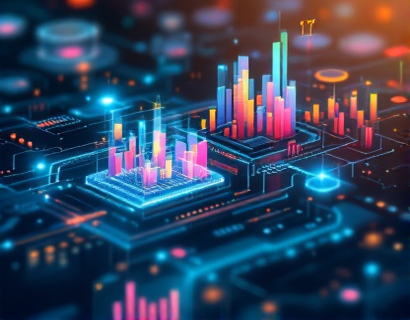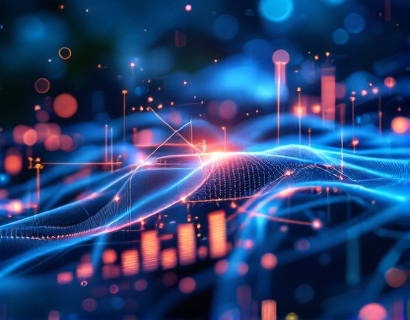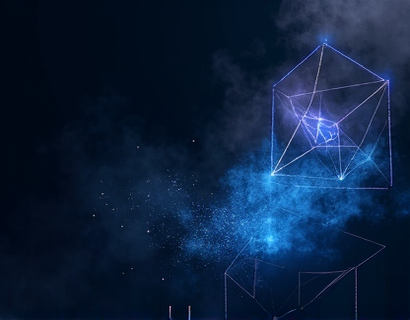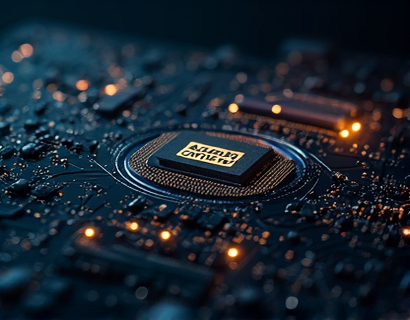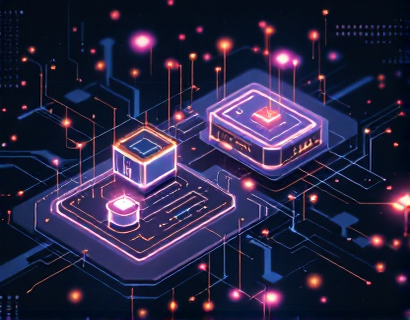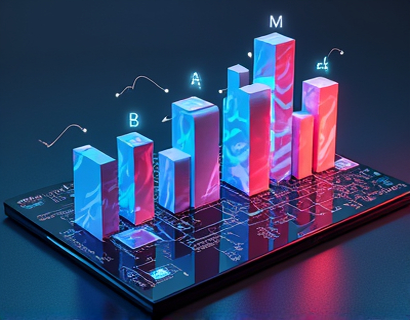Blockchain Oracle Management: Revolutionizing Decentralized Applications with Advanced Data Integration and Smart Contract Solutions
In the rapidly evolving landscape of blockchain technology, the integration of reliable data sources is crucial for the success of decentralized applications (dApps). Blockchain oracle management emerges as a pivotal solution, enabling dApps to access and utilize external data seamlessly. This article delves into the intricacies of blockchain oracle management, exploring how advanced data integration and smart contract solutions can transform the capabilities of blockchain applications. By optimizing data flow and enhancing security, these solutions unlock the full potential of blockchain technology, making it more practical and efficient for developers and businesses.
Understanding Blockchain Oracles
Blockchain oracles serve as the bridge between the blockchain and the external world. They fetch real-time data from off-chain sources and relay it to smart contracts on the blockchain, and vice versa. This two-way communication is essential for dApps that require up-to-date information to function correctly. Without oracles, smart contracts would be limited to operating based on pre-programmed logic, lacking the dynamic data inputs necessary for real-world applications.
Oracles can be categorized into two main types: centralized and decentralized. Centralized oracles rely on a single entity to provide data, which can introduce single points of failure and trust issues. Decentralized oracles, on the other hand, use multiple sources to aggregate data, enhancing reliability and security. Decentralized oracles are particularly favored in the blockchain ecosystem due to their resilience and transparency.
The Importance of Oracle Management
Effective oracle management is vital for the seamless operation of dApps. It involves selecting, integrating, and maintaining a network of oracles to ensure consistent and accurate data flow. Poor oracle management can lead to data latency, inaccuracies, and security vulnerabilities, all of which can compromise the integrity of smart contracts and the overall user experience.
Advanced oracle management solutions address these challenges by providing robust frameworks for oracle selection, data validation, and error handling. These solutions enable developers to build more reliable and scalable dApps, reducing the risk of failures and enhancing user trust. By streamlining the oracle integration process, developers can focus on innovation rather than the complexities of data management.
Data Integration Challenges and Solutions
One of the primary challenges in blockchain data integration is the heterogeneity of data sources. External data can come from various formats and protocols, making it difficult to standardize and integrate into blockchain systems. Advanced oracle management solutions tackle this issue by offering flexible data mapping and transformation capabilities. These tools allow developers to define custom mappings and transformations, ensuring that data from diverse sources can be seamlessly integrated into smart contracts.
Another challenge is data latency. Real-time data is crucial for many applications, and any delay can render the data obsolete. Oracle management solutions address this by implementing efficient data fetching mechanisms, such as asynchronous requests and caching strategies. These techniques minimize latency and ensure that smart contracts have access to the most current data possible.
Enhancing Smart Contract Functionality
Smart contracts are the backbone of many blockchain applications, but their functionality is heavily dependent on the data they receive from oracles. By integrating advanced oracle management solutions, developers can significantly enhance the capabilities of their smart contracts. For instance, financial dApps can use real-time market data to execute trades automatically, while supply chain applications can track goods in real-time, ensuring transparency and efficiency.
Moreover, oracle management solutions can facilitate the creation of more complex and interactive smart contracts. By providing reliable and timely data, these solutions enable the implementation of sophisticated business logic, such as conditional payments, dynamic pricing, and automated workflows. This level of functionality is essential for building robust and user-friendly dApps that can compete with traditional centralized systems.
Security Considerations in Oracle Management
Security is a paramount concern in blockchain oracle management. Oracles act as gatekeepers, and any vulnerability can be exploited to manipulate smart contracts and steal funds. To mitigate these risks, advanced oracle management solutions employ several security measures.
Firstly, decentralized oracles reduce the risk of single points of failure by aggregating data from multiple sources. This redundancy makes it harder for attackers to compromise the entire data feed. Secondly, these solutions often implement cryptographic techniques to verify the authenticity and integrity of the data. For example, oracles can use time-stamping and digital signatures to ensure that the data has not been tampered with.
Additionally, oracle management platforms can incorporate reputation systems to rate and filter oracles based on their reliability and accuracy. This mechanism incentivizes oracles to provide high-quality data, as their reputation directly impacts their ability to participate in the network. By combining these security measures, developers can build more secure and trustworthy dApps.
Case Studies and Real-World Applications
To illustrate the practical benefits of advanced oracle management, let's consider a few real-world applications. In the decentralized finance (DeFi) space, oracles play a critical role in price feeds for lending and borrowing platforms. A well-managed oracle network ensures that interest rates and collateral requirements are based on accurate market data, preventing arbitrage opportunities and maintaining market stability.
Another example is in the Internet of Things (IoT) domain, where oracles can aggregate data from various connected devices. A smart home application, for instance, can use oracle-managed data to automate tasks based on real-time environmental conditions, such as adjusting the thermostat or turning on lights. This level of integration enhances user experience and demonstrates the versatility of blockchain oracles.
Future Trends in Oracle Management
The field of blockchain oracle management is rapidly evolving, driven by the growing demand for decentralized and reliable data sources. One emerging trend is the integration of machine learning and artificial intelligence to predict and optimize data fetching processes. AI can analyze historical data patterns to predict future trends, allowing oracles to fetch data more efficiently and reduce latency.
Another trend is the development of cross-chain oracles, which enable data exchange between different blockchain networks. As the ecosystem becomes more fragmented, cross-chain oracles will play a crucial role in creating a more interconnected and interoperable blockchain landscape. This will open up new possibilities for dApps that require data from multiple chains, enhancing their functionality and reach.
Conclusion
Blockchain oracle management is a transformative technology that addresses one of the key challenges in building robust decentralized applications. By providing advanced data integration and smart contract solutions, oracle management platforms empower developers and businesses to harness the full potential of blockchain technology. As the ecosystem continues to evolve, the importance of efficient and secure oracle management will only grow, paving the way for a more decentralized and data-driven future.



